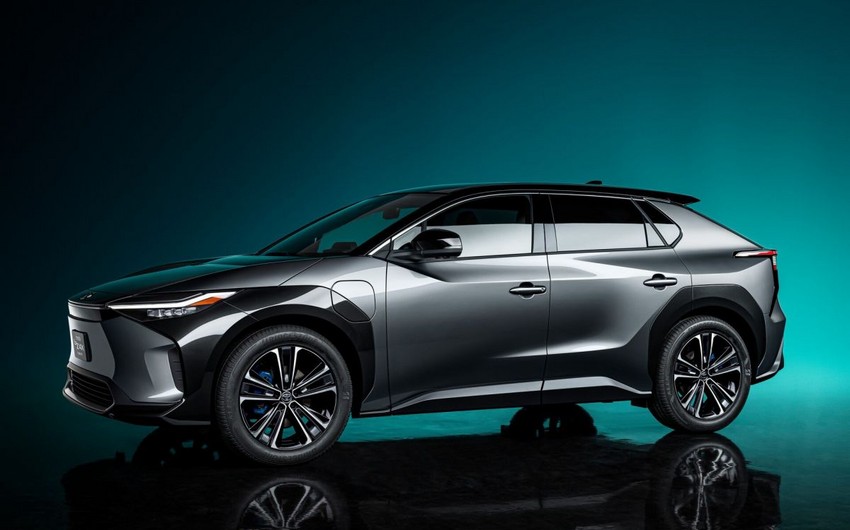Toyota Motor Corp. is kicking off its first series of electric vehicles bound for the global market with a battery-powered SUV that the Japanese automaker says embodies the reliability and efficiency underpinning the Toyota brand, Report informs referring to Bloomberg.
The “bZ4X,” which resembles Toyota’s popular Rav-4, is set for release in North America, Japan, China and Europe in mid-2022, the company said October 29. With an estimated range of around 500 kilometers (310 miles) per charge, the bZ4X is the first of seven “bZ” series EV models the automaker plans to introduce globally by 2025.
Toyota, the world’s biggest automaker, has been slower to build its presence in the EV arena compared with rivals such as Volkswagen AG, which began shipping its flagship ID.3 EV in 2020. Even so, the bZ4X is based off more than two decades of experience with battery-powered cars, according to Toyota General Manager Daisuke Ido.
The car is also equipped with a slew of Toyota’s latest technologies. They include the “Toyota Safety Sense” driver assistance system, which, along with multimedia systems in the car, will be capable of over-the-air updates. Some models will come with a rectangular “steer-by-wire” yoke that enables drivers to maneuver the vehicle without having to change hands.
The bZ4X, unveiled earlier this year at the Shanghai auto show, will come with the option of rooftop solar panels. They will help charge the vehicle when parked outside and are capable of generating enough electricity to drive an extra 1,800 kilometers a year, according to Toyota’s estimates.
The Japanese government at the end of last year approved a new plan to reduce greenhouse gas emissions, which, among other things, sets a goal to phase out the production of all gasoline and diesel vehicles by the mid-2030s. The document affects a total of 14 sectors, such as housing regulations, hydrogen energy development, etc.
According to the Japanese government, the adopted development strategy should ultimately stimulate the country’s economy and create an economic effect of almost $900 billion by 2030 year and more than $1.8 trillion over the next 20 years.


 https://static.report.az/photo/7381704e-acb2-3602-9010-e0d6e9977d20.jpg
https://static.report.az/photo/7381704e-acb2-3602-9010-e0d6e9977d20.jpg

